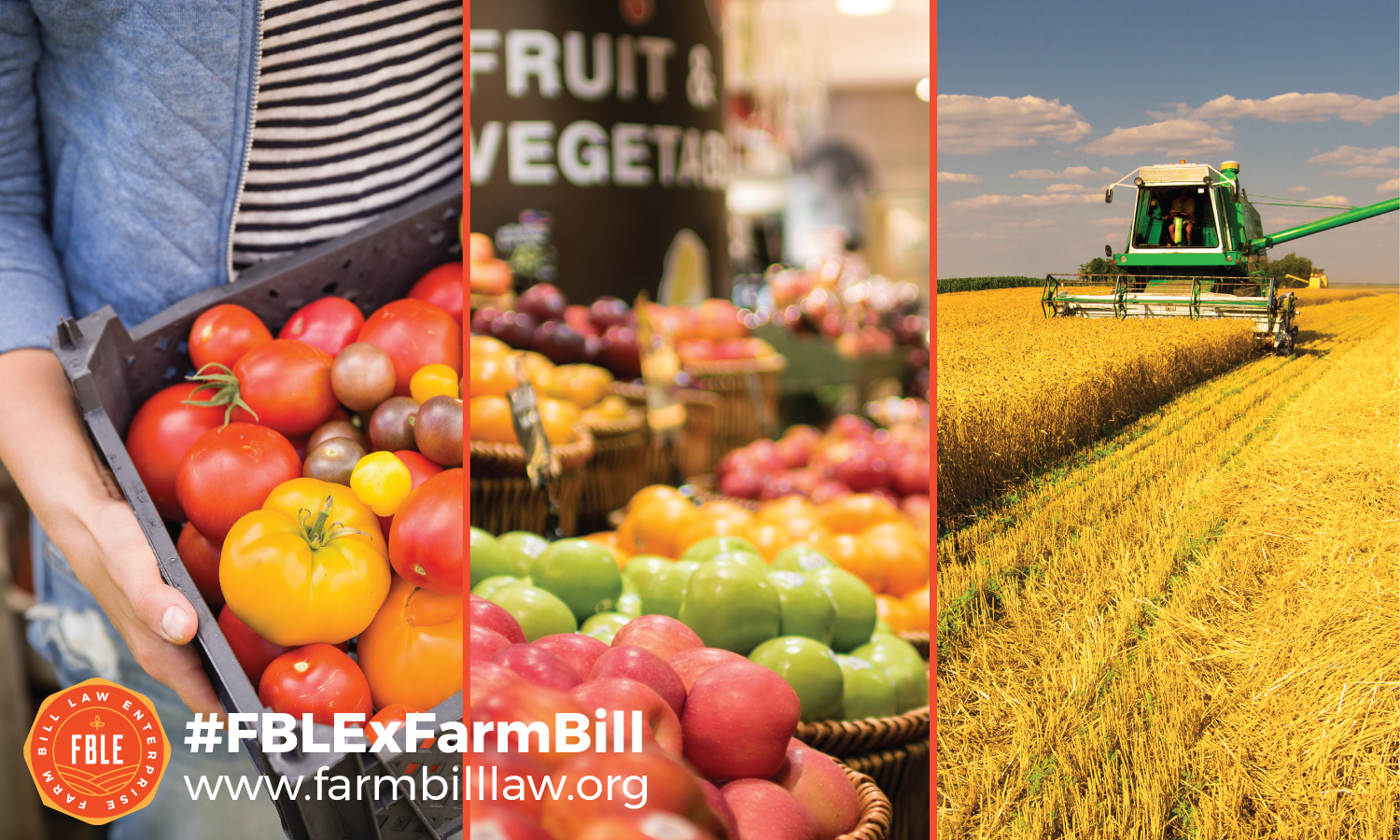Three reports out today from the Farm Bill Law Enterprise (FBLE) apply a justice lens to the farm bill debate underway on Capitol Hill.
FBLE’s reports coincide with the imminent release of draft farm bills in the House and Senate, which Congressional observers anticipate next month.
The reports are the product of a novel partnership between eight law school programs: the Duke Law School Environmental Law & Policy Clinic; Harvard Law School Environmental Policy Initiative and Emmett Environmental Law and Policy Clinic; Harvard Law School Food Law and Policy Clinic (FLPC), Harvard Law School Health Law and Policy Clinic; Pace University Elizabeth Haub School of Law Food Law Initiative; UCLA School of Law Resnick Program for Food Law and Policy; Vermont Law School Center for Agriculture and Food Systems; and Yale Law School Environmental Protection Clinic.
By combining expertise in food, public health, and environmental law, FBLE is the first effort of its kind.
“The farm bill is the most important piece of legislation affecting our food and farming system. My colleagues and I decided to invest the time working together to address this legislation because it’s so vital to justice in the food system.”
New farm bills happen only every five years. The current farm bill expires in September, and if Congress does not act by that deadline many important programs will perish.
“The farm bill is the most important piece of legislation affecting our food and farming system,” says Emily Broad Leib, FLPC’s Director and an author on FBLE’s reports. “My colleagues and I decided to invest the time working together to address this legislation because it’s so vital to justice in the food system.”
In addition to members programs, FBLE recruited law students from across the country to work on the project. In 2016, the newly formed FBLE dove into collaborative research. Together, faculty and students analyzed each of the farm bill’s components, research that is available on the FBLE website.
This research helped FBLE members develop shared goals for a farm bill that meets the long-term needs of our society. These goals include a reliable and nutritious food supply, an honest living for farmers, a healthy environment, and a strong safety net against hunger.
FBLE’s reports make recommendations for how the next farm bill can begin to meet those goals by maintaining key programs that work, adding new programs, and redistributing funding in ways that are better for health, the environment and justice.
Each report focuses on a specific theme: Diversified Agricultural Economies; Food Access, Nutrition, and Public Health; and Productivity and Risk Management.
FBLE expects its reports will convince more people to get involved, and FBLE’s website will also track the bill’s progress over the coming months.
If the farm bill seems daunting, don’t despair. Understanding the farm bill can feel like stumbling through a dark maze, but FBLE is here to give you a flashlight.

